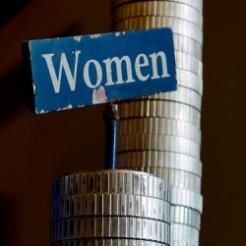The charity sector is one of the most female-friendly sectors. But women still aren't getting the top jobs. At the Acevo women's summit last week, Emily Corfe heard some of the reasons why.
The charity sector is one of the most female-friendly sectors with many more women working in it men. But those women aren’t getting to the top jobs and research shows that the bigger the charity, the less likely it is to have a woman at the helm.
A peek at the top 100 charities reveals that just 37 per cent trustees – and only 16 per cent of chairs - are women. A charity index in 2012 revealed that throughout the sector, under 25 per cent of chief executives are women.
Inner gremlins
Are women bearing the brunt of an unfair charity sector or are they simply the victims of their own “gremlins”?
That was the question Girlguiding chief executive Julie Bentley recently asked at an Acevo summit for female chief executives in the sector.
Regardless of the sector, there are some commonalities about being a woman leader, Bentley said. She referred to “gremlins that many women in leadership deal with".
She said many have a little voice that says “who, me?” rather than “why not me?”
Bentley also said that the desire to be liked holds women back.
“As a leader, often our decisions are not popular,” she said. “People will be upset by our actions and not agree with what we are doing. And it can be really lonely sometimes. The fact is that in leadership, we won’t be liked. This has been the single hardest thing for me to learn in my career and come to terms with.”
Bentley also told the the summit that women are more likely to let self-doubts stop them from applying for the top jobs.
Bentley' s feeling is that women are too likely to put their self-doubt in the way of doing a job. She feels that women are much more coy about their achievements, and that while men are much more likely to take direct credit, women are more likely to attribute success to external factors.
Social status
Another speaker, Pamela Ball, chief executive of Knowsley CVS, said financial and social status played a bigger part in women’s success than other women who enjoy success like to admit.
Ball said she was unhappy with professional women who say they were never discriminated against and that there is no glass ceiling.
She said successful women tend to assume that others could also "pull themselves up by their bootstraps" in the same way, but that in actualiuty, most successful women succeed because of privilege - whether the privilege of education, the privilege of money or the privilege of a family that values education and work.
Public sector cuts
Speaker Polly Neate, chief executive of Women’s Aid pointed out the adverse effect of public sector cuts on women - both in the charity sector and outside.
She said that women were disproportionately both recipients and providers of public services, and had been disproportionately affected by public sector cuts. She said these cuts affected black women in particular, even more.
Neate told the conference that the women’s sector – often stemming from small activist-led women, many of whom are survivors of abuse – is fast being “wiped out” by large business-like charities bidding for “someone else’s work”.
Gender neutrality
Neate also told the conference that the sector’s eagerness to push “gender neutrality” in the women’s sector doesn’t solve any problems.
Organisations that work with girls and women need to make the case that their needs are very distinct and different, she said, and that a one size fits all approach is not correct.
And she said women must be allowed to continue to talk about the inequality between men and women.
Stay angry
Labour MP Stella Creasy urged the audience of charity chief executives to be “pissed off feminists”.
She said that 40 years after the equal pay act, women were still not being paid as much as men, that the UK has fallen out of the top 20 gender equal countries, and that female leadership was disproportionately in the social sectors.
“We let women run health and education but we don’t let them near the guns and economy,” she said.
She said that what had happened so far was "hollow progress"
She said the vast majority of progress is in non-executive positions – appointing women to make up the numbers but not to make the decisions.
Creasy closed the day with an echo of Bentley’s words about women in the sector’s leadership positions.









